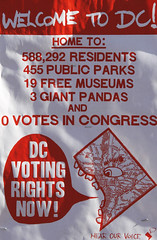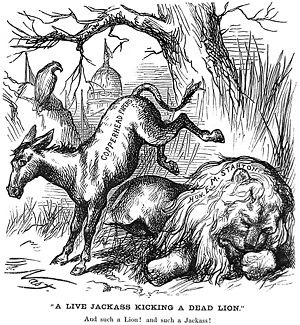"Self-respect cannot be hunted. It cannot be purchased. It is never for sale. It cannot be fabricated out of public relations. It comes to us when we are alone, in quiet moments, in quiet places, when we suddenly realize that, knowing the good, we have done it; knowing the beautiful, we have served it; knowing the truth, we have spoken it”. Whitney Griswold
The departure of Zein el-Abidine bin Ali of Tunisia from the political scene and the subsequent upheavals in the streets of Cairo, Amman, and Sana’a attest to the growing discontent among traditionally-inclined and politically-impervious Arabs who endured decades of misrule imposed by bureaucracies composed of miscreants and tyrants with ties to western powers who have mastered the art of double-standards. The spread of self-immolation by disgruntled youth besieged by unemployment and poor living conditions in several Arab cities could not even attract the attention of the brazenly Bedouin Arab leader reclining in a golden chair surrounded by concubines deep inside a well-fortified golden palace.
After harrowing decades of ill-treatment and oppression by dreaded police forces, ordinary Arabs have awoken from heavy slumber ready to take charge of their destinies without any interference of any sorts. Having squandered the national wealth of Tunisia for years, autocrat Zein el-Abidine bin Ali finally packed his possessions stealthily under the cover of darkness to seek refuge among the Saudis before being apprehended unawares by an overwhelmingly rowdy youth baying for his blood.
In Cairo, Muhammad Hosni Mubarak mysteriously exited the political spectrum after handpicking a ruthless vice-president and dissolving parliament indefinitely. Mubarak’s attempts to quell civil disturbances by deploying his despised police force failed to materialize after being overtaken by an ocean of angry demonstrators who kept vigil at the famous “Tahrir Square” in the heart of Al-Qahira. Mubarak has been in power since the assassination of Anwar Sadat by the Islamic Brotherhood in 1981. Mubarak, the man perceived by the West as a darling, ally, and impeccable for strictly adhering to the West’s never-ending laundry list of wishes, remains culpable in the eyes of ordinary Egyptians primarily for imposing on them thirty-one years of curfew, mismanagement, and political miscalculations. The thousands of demonstrators who gathered in the historic liberation square of Cairo decried the years of extra-judicial killings, arbitrary arrests, unemployment, embezzlement, political subjugation, and many other forms of injustices committed by Mubarak’s regime.
After the unprecedented departure of the authoritarian rulers of Tunisia and Egypt respectively, another hot-headed leader, Muammar Ghaddafi of Libya-a man who has been on the helm for over forty years-remains cornered by a ruthless and unrelenting rebellion. Sardonically, Ghaddafi has resorted to using full-scale military tactics including scotched-earth pounding of civilian populated areas by Libyan airforce jet fihters and artillery fire to subdue an uncontrollable opposition that has already spilled to every part of the desert-whipped country. There have been reports of machette-wielding, gun-totting pro-Ghaddafi loyalist hoodlums indiscriminately killing unarmed opponents.
Judging by his quest for prestige and power in the international stage, Ghaddafi seems to have all the attributes of Hannibal, the Carthaginian general who is regarded by many historians as the father of strategy. Hannibal son of Amilcar Barca, was reputedly the leading Carthiginian commander during the First Punic War (264-241 BC) that was fought between Ancient Carthage and the Roman Republic. For 23 years, Carthage and Rome fought for supremacy of the western Mediterranean Sea especially over the Island of Sicily and and to a lesser extent including surrounding waters and north Africa. As the war of liberation intensifies in Libya, many political analysts and historians keep guessing whether Ghaddafi will keep fighting courageously like Hannibal who finally succumbed to a humiliating betrayal and defeat.
In Bahrain, a tiny kingdom in the Middle East separated from Iran by the Persian Gulf, mounting violence in the main city of Manama triggered by embittered protesters finally ended after the ruling theocratic sheikhs agreed to full political transformations. Likewise, in Yemen, a nation bordering Saudi Arabia to the south, there had been media reports of massive protests against the dictatorial regime of Ali Abdalla Saleh. President Saleh, a former army colonel in the Yemeni army, has been in power since 1978. Beginning with the Tunisian and Egyptian uprisings, demonstrations calling for regime changes and democratic governance have jolted the nations of Jordan, Djibouti, Oman, Iraq, Iran, and others.
For a long time Muslim scholars associated democracy with western values and ideals. Some scholars even went as far as describing democracy as un-Islamic, corrupt, and contrary to Islamic political thought. On the contrary, after witnessing abrupt changes in the behavior of the mainstreet Arab/Muslim, novel interpretattions keep sprouting from many mosque pulpits calling for political reformations and democratization of Muslim lands. Despite castigating democracy in the strongest terms, vocal Muslim scholars kept aloof from denouncing corrupt leaders for fear of repercussions. Instead, their surmons revolved around human rights, equality and justice, freedom and governance, respect and dignity, and topics of like nature that abound in the genesis of democracy.
The term democracy incorporates: (a) freedom to form and join organizations; (b) freedom of expression; (c) right to vote; (d) eligibility for public office; (e) right of political leaders to compete for support; (f) right of political leaders to compete for votes; (g) alternative sources of information; and (h) free and fair elections. On the other hand, democracy is about majoritarian rule.
It could be argued that the current clashes visible in Arabian/Muslim cities is a harbinger for impending political changes and a stepping stone for future globalization of democracy. From a realist perspective, the internationally televised self-immolation ritual demonstrated by the irritated, unemployed Tunisian degree-holder seems to have globally spread far and wide leaving many autocrats in looming danger.
 Image via Wikipedia
Image via Wikipedia






